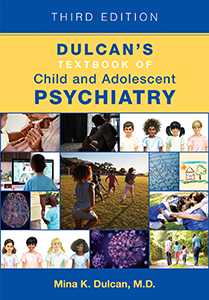Sections
Excerpt
Assessing and treating children and adolescents is a privilege that carries great responsibility. Parents are often bringing the most precious and vulnerable person in their lives to the clinician; they have many questions and are seeking guidance. The circumstances motivating the evaluation can vary greatly, and understanding these is critical in setting the stage for the assessment and successful treatment plan.
Access content
To read the fulltext, please use one of the options below to sign in or purchase access.- Personal login
- Institutional Login
- Sign in via OpenAthens
- Register for access
-
Please login/register if you wish to pair your device and check access availability.
Not a subscriber?
PsychiatryOnline subscription options offer access to the DSM-5 library, books, journals, CME, and patient resources. This all-in-one virtual library provides psychiatrists and mental health professionals with key resources for diagnosis, treatment, research, and professional development.
Need more help? PsychiatryOnline Customer Service may be reached by emailing [email protected] or by calling 800-368-5777 (in the U.S.) or 703-907-7322 (outside the U.S.).



